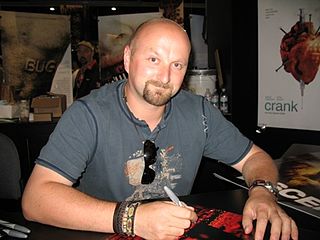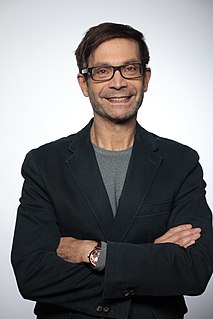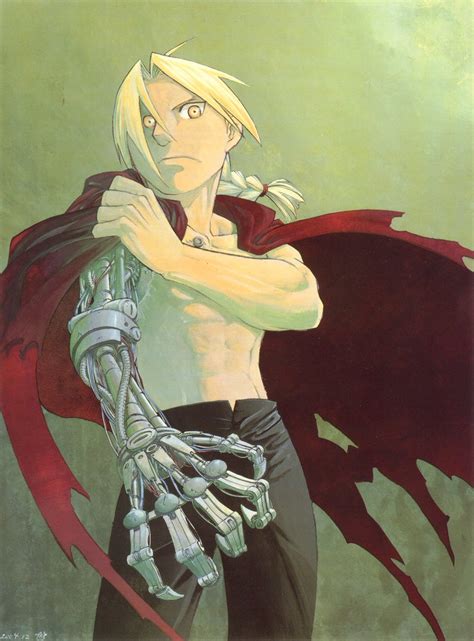A Quote by Michelangelo Antonioni
When I am shooting a film I never think of how I want to shoot something; I simply shoot it.
Related Quotes
Usually, I have in mind what I want to do. I shoot pretty economically, so I'm not shooting tons of stuff that I could change, all that much. I'll cut something or add a little something back, but not too much. This is maybe the producer part of me, but I'm always worried about the budget, so I shoot what I know I need to shoot for the film.
I came back to Haiti after the earthquake not to shoot a film, but to help and be a part of the rebuilding process, like all my fellow compatriots. I didn't come to shoot a film, but I became frustrated when I realized that my help was kind of useless. We all felt lost and helpless. And it's out of that frustration that I decided to shoot a film.
I became passionate about nature filmmaking when I graduated from UCLA, and one of the things I always wanted to do was shoot really high quality film, so I got into time-lapse photography - so that means when you shoot a flower, you're shooting, like, one frame every twenty minutes, so that's basically two seconds of a film per day.
The great thing about not having a script is there's nothing you have to shoot that day. When you start filming, you can shoot anything you want. There's no pressure to shoot anything. Whatever interests you that day is what you're shooting. That's a big liberation that makes it more enjoyable and more relaxed. I think if you have that kind of framework it can make it a much more satisfying thing to work on and to watch as well.
By temperament I am not unduly excitable and certainly not trigger-happy. I think twice before I shoot and very often do not shoot at all. By professional standards I do not waste a lot of film; but by the standards of many of my colleagues I probably miss quite a few of my opportunities. Still, the things I am after are not in a hurry as a rule.





































